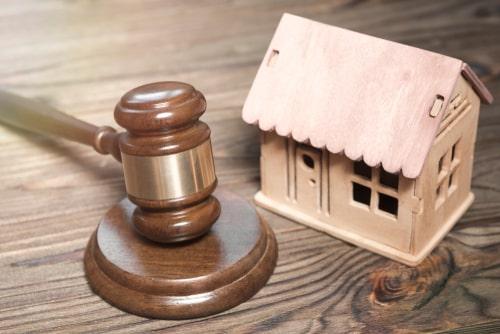How to Address Ownership of Your Family’s Home During Your Divorce
 Financial issues are likely to be one of your primary concerns when you get divorced. Decisions about how to divide your marital property will affect the resources available to you after you finalize your divorce. You will also need to be aware of the tax implications of these decisions and the expenses that come with ownership of certain assets. Addressing your marital home can be difficult, since it may be one of your most valuable assets, and both you and your spouse may have emotional attachments to it. By understanding the available options, you can determine the best approach to take as you divide your marital assets.
Financial issues are likely to be one of your primary concerns when you get divorced. Decisions about how to divide your marital property will affect the resources available to you after you finalize your divorce. You will also need to be aware of the tax implications of these decisions and the expenses that come with ownership of certain assets. Addressing your marital home can be difficult, since it may be one of your most valuable assets, and both you and your spouse may have emotional attachments to it. By understanding the available options, you can determine the best approach to take as you divide your marital assets.
3 Options for Handling Ownership of Real Estate
If you and your spouse bought your home after you got married, it will be considered a marital asset, even if it was only titled in one spouse’s name. This means that the equity in your home will need to be included in the division of marital property. If either of you owned your home before you got married, it will usually be considered separate property that is not part of the marital estate. However, if the home increased in value during your marriage due to contributions by both spouses (such as using marital funds to pay for home improvements), the spouse who owns the home may be required to reimburse the other spouse for their contributions.
Typically, you will need to take one of three approaches when addressing ownership of your marital home:
-
One spouse maintains ownership of the home - Property may be divided in a way that one spouse will continue to own the home while allocating other assets that have a similar value to the other spouse. In these cases, the home will need to be refinanced to ensure that one spouse’s name is removed from the mortgage and the home’s title. The spouse who owns the home will need to be sure they will be able to afford mortgage payments, as well as other ongoing expenses, such as utilities, maintenance costs, and property taxes.
-
The home will be sold - If one spouse will not be able to maintain sole ownership of the home, or if it would not be possible to divide the marital estate fairly otherwise, you and your spouse may agree to sell the house during your divorce. Doing so will allow you to divide any profits you earn from the sale, or you may use the proceeds to pay off joint debts. However, you will want to be sure to understand how capital gains taxes may apply to the sale and whether you will qualify for an exclusion from these types of taxes.
-
You will continue to co-own the home following your divorce - It is usually not advisable for ex-spouses to maintain financial ties to each other through co-ownership of property. However, you may wish to continue owning your home together in some circumstances, such as to make sure your children will be able to continue living in your home until they graduate from high school. This option may allow you to use a “birdnesting” arrangement for child custody, in which you or your spouse will live with your children in your marital home during your parenting time, while staying in separate residences at other times.
Contact Our Kane County Asset Division Attorneys
During your divorce, the attorneys of Serrano Hanson can advocate for your interests as you determine how to divide your marital property, and we will make sure you understand your options for addressing your marital home. Contact our Geneva property division lawyers today by calling 630-844-8781.
Sources:
https://www.homelight.com/blog/dividing-real-estate-in-a-divorce/
https://www.zillow.com/sellers-guide/divorce-selling-house/
https://realestate.usnews.com/real-estate/articles/real-estate-mistakes-you-dont-want-to-make-in-a-divorce


 630-844-8781
630-844-8781



